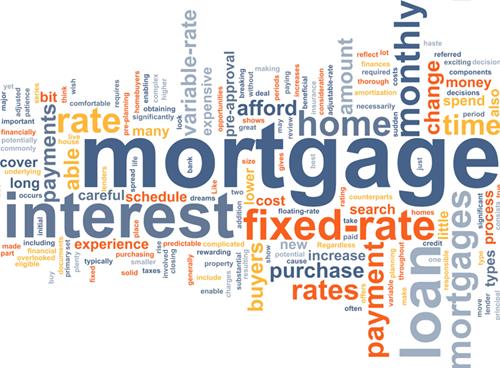Freedom from your mortgage? You'll pay for that
8/22/2016
| SHARE
Posted in Mortgage Advice by Vanguard Realty | Back to Main Blog Page

Expect a goodbye kiss from your lender when you finally pay off your mortgage.
An example of inappropriate contact? You bet. A goodbye kiss is the euphemism in the mortgage biz for the fees that clients are typically charged when they finish paying their mortgages and reach a zero balance.
Paying your mortgage off is a highlight personal finance moment in life – an opportunity to shift major amounts of household cash flow from debt repayment to something else. May I suggest retirement savings if you’re stuck for ideas.
There are costs to mortgage freedom that suggest two rules for approaching your final payment. One is to have as much as a few hundred bucks available to pay your discharge fees, and another is not to get so over-amped about mortgage freedom that you pay your balance owing early. Do this and you will likely increase the costs of ending the relationship with your mortgage lender.
Discharging a mortgage is more complicated than simply making a final payment on a debt. When you arranged your mortgage, your lender registered a lien against the title of your home as security in case you don’t pay what you owe. The discharge removes this lien, with administrative charges potentially coming from both your bank and the province.
All-in costs are typically in the area of $250, but vary from province to province. For example, Toronto-Dominion Bank said it charges $260 in Ontario and $75 in British Columbia.
A way to potentially make this money back over time is to inform your home insurer that there is no longer a mortgage on your home. The mortgage-free discount at some insurers can run as high as 10 to 20 per cent, but don’t get your hopes up. Some firms reserve the discount for people who are mortgage-free and don’t have a line of credit secured by their home.
Don’t shut down your home equity lines of credit just to get this home insurance discount. HELOCs, as they’re known in the banking biz, are the lowest-cost and most flexible way for financially disciplined people to borrow. They are also a good alternative to reverse mortgages for seniors who need cash.
Online banking gives you the opportunity to watch your outstanding mortgage balance wind down over time as you make your payments. When you get within a few months of the end, you may be tempted to speed things along by paying off the remaining balance in one lump sum.
Resist the impulse. Though you’re close to the natural end of your mortgage, a prepayment penalty will likely apply in this situation. “If you’re, like, a month away from your last payment and you break your mortgage, you can still be charged three months’ interest,” said Robert McLister, a mortgage planner and founder of RateSpy.com. “Some lenders will only charge the interest balance due until maturity.”
Generally speaking, the penalty for breaking a fixed-rate mortgage is the greater of three months’ interest on your mortgage or a calculation called the interest rate differential, or IRD. The IRD compensates your lender for interest you would have paid if you’d stuck to your scheduled payments. Variable-rate mortgages typically use the three months’ interest penalty.
If you break a mortgage well before it’s paid off, you’ll typically pay the IRD. Three months’ interest will apply to a mortgage on the brink of being paid off because it would deliver the higher penalty fee to your lender.
Depending on your lender, breaking a mortgage in the early years can also generate what’s called a reinvestment fee. For example, TD charges a $300 reinvestment fee for variable and fixed-rate mortgages that are paid off early during the first term. TD says the fee helps offset the costs of acquiring and funding a mortgage.
Mr. McLister describes the reinvestment fee as “one of those ‘what the hell is this’ charges.” But the discharge fee charged to people who have dutifully paid their mortgage to the end will also grate. Maybe your lender will waive the fee – it never hurts to ask, especially if you’re been a long-time loyal client. Otherwise, consider the payment one last toll to be paid on the way to mortgage freedom and a big bump in your monthly retirement savings.
Rob Carrick / theglobeandmail.com
Home Owners, Mortgage Advice, Mortgage Consumers, Mortgage Insurance, Mortgage Tips, Mortgages & Real Estate

Thinking of buying or selling a property, or have a question regarding the real estate market? Fill out the form below and we'll get back to you promptly.
